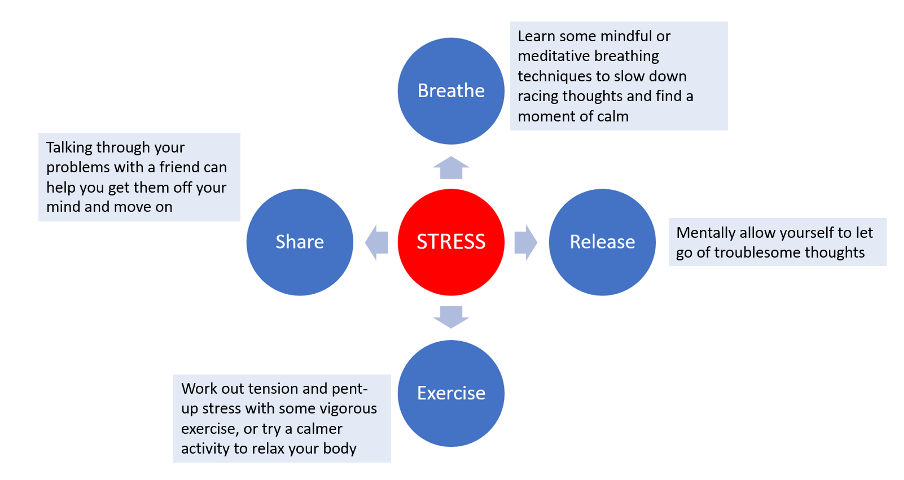Everyone matters. Looking after someone who has schizophrenia doesn’t mean your own health is less important.
Being a carer, partner, parent, sibling or friend to someone with schizophrenia can be really tough, physically and mentally.1,2
You’re not trained for this, and it may be completely out of your comfort zone to take on this kind of role - for all sorts of reasons. If you’re finding it difficult, it’s not failure. It’s normal.
Managing Stress
When you’re going through a stressful time, your body and mind go into “survival mode”. Your fight-or-flight instinct kicks in, flooding your system with adrenaline and cortisol.3
This is very useful when presented with a real physical danger, as it enables you to run away from the danger or attack the source, and enable you to survive. 3 But in modern times most of the stresses we encounter are about having too much to do, too much responsibility, not enough power to do some of the things we need to, interpersonal tensions and having conflicting needs or drives – we can’t physically run away from these things OR hit them with a big stick, so we get stuck in a state of hypervigilance without the means to do anything about it.3,4
Managing stress involves breaking this vicious circle and finding ways to release stress in healthy ways:3,4,6

Trying to carry on when you feel stressed to your limits won’t do you -or the person you look after- any good. If things are really getting to the point where you feel you can’t cope, talk to a doctor as soon as you can. They may be able to help by…
…referring you all for family counselling
…advising on local mental health agencies who may be able to help
…connecting you to carers’ support services in your local area, such as a self-help group
When times are tough, always try to remember…
|
Are you close to burning out?
How do you know when you’re burnt out? Everyone reacts differently, but common signs that you’re becoming overwhelmed by stress and anxiety might include:4,7
- Difficulty concentrating
- Being grouchy, cynical or cold-hearted
- Being short-tempered, easily irritated
- Feeling like you’re not good enough, you can’t do this
- Having trouble sleeping
- Feeling totally exhausted – everything seems like a huge effort
- Eating much more or much less than usual
- Drinking alcohol and/or smoking more than usual
- Headaches, muscle tension and various niggling aches and pains
If any of these apply to you, it’s time to slow down and give yourself a break. Allow yourself some time to focus on your own mental health for a while. It’s not good for you to try to fight your way through this – it won’t get better on its own, and you’re risking your physical health by continuing in this way.
REFERENCES:
-
Hansen T, Slagsvold B. The psychologial effects of providing personal care to a partner: a multidimensional perspective. Health Psychology Research. 2013. DOI: 10.4081/hpr.2013.e25.
-
RWA Psychology. Caring for someone. Available at:https://www.rwapsych.com.au/blog/caring-for-someone/ Last accessed: July 2022.
-
Harvard Health. Understanding the stress response. Available at:https://www.health.harvard.edu/staying-healthy/understanding-the-stress-response Last accessed: July 2022.
-
Better Help. 7 tips to find balance and relax. Available at:https://www.betterhelp.com/advice/stress/how-to-stop-stressing-7-tips-to-find-balance-and-relax/ Last accessed: July 2022.
-
Better Help. Hypervigilance. Available at:https://www.betterhelp.com/advice/ptsd/coping-with-being-hypervigilant/ Last accessed: July 2022.
-
Better Help. Stress management strategies. Available at:https://www.betterhelp.com/advice/stress/feeling-overwhelmed-learn-these-stress-management-strategies/ Last accessed: July 2022.
-
WebMD. Signs you’re burned out. Available at:https://www.webmd.com/balance/ss/slideshow-signs-burnout Last accessed: July 2022.




